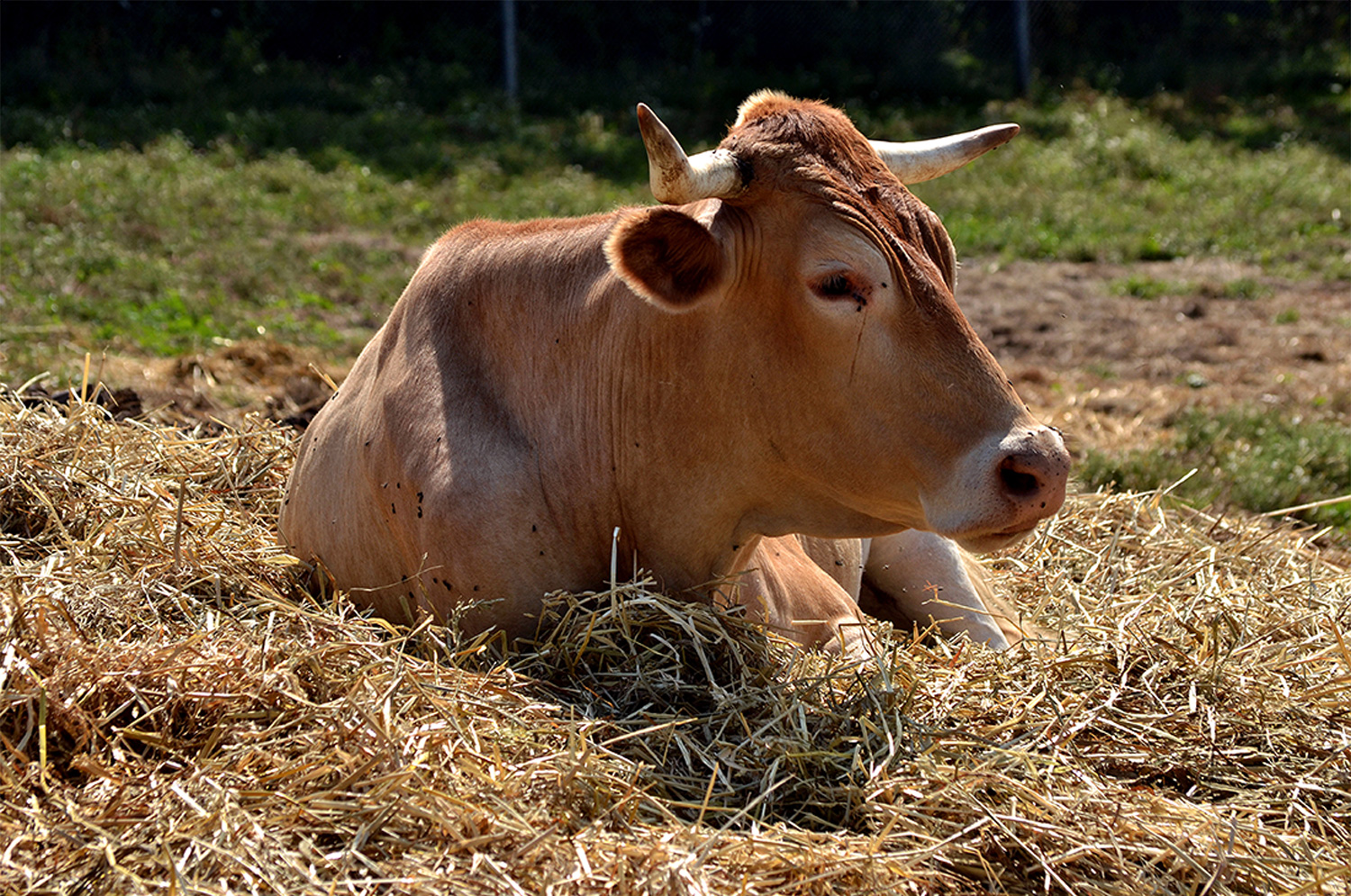While most savvy farmers know that ground feeding is an outdated method, some still hold onto this old tradition—and that’s a bad thing. Some classic farming traditions have unfortunately stuck around.
Still common among both cow farmers and equine enthusiasts, ground feeding is actually counterproductive, as it wastes hay (and money) and exposes both types of animals to entirely preventable parasites.
At Farmco, we build the world’s best cow and horse feeders, so we know the difference a sturdy feeder can make for your herd. It’s one of our missions to educate all types of farmers about the waste and the danger caused by ground feeding hay to your animals.
Contents
Why Do Some Farmers Still Ground Feed?
There isn’t just one answer for this question. From what we’ve heard talking to real farmers, it comes down to four things:
- Misconceptions about their animals—We’ve heard some farmers say that their animals, particularly horses, are just happier eating with their nose in the ground, which they consider a more natural position.
- Misinformation — Some farmers have simply never gotten the facts about ground feeding and take the downsides for granted. That’s where we come in.
- Ease of ground feeding — While using Farmco feeders isn’t challenging, ground feeding is simpler. However, once you switch to a feeder you’ll know the extra minute of work is worth it (you might also find our article, “No Waste Hay Feeders for Cattle”, helpful).
- Desire to put off buying a feeder — Buying a feeder is an upfront cost. While the investment will pay for itself with saved hay, some farmers are hesitant to spend the money. (By the way, buying a feeder can be one way to get a farm tax deduction!)
How Ground Feeding Wastes Hay
Some farmers say that ground feeding is the most natural way to feed animals. That might be true, but it doesn’t mean it’s the best way.
Here are the most common ways we see ground feeding waste hay:
- If the ground is damp, the hay will get wet and begin growing mold. Unfortunately, some animals will still eat moldy hay, which can lead to serious medical problems. (Learn more about the dangers of moldy hay.)
- Animals soil the hay, by urinating or defecating on it. Animals won’t consume hay ruined in this way.
- Animals trample the hay, crushing it and grinding it into the mud. Trampled hay is difficult to eat and horses, in particular, are discerning enough not to eat it.

As a 21st century farmer — whether it’s your job or hobby — you need to find ways to save money wherever possible. Hay and other feed isn’t cheap. This is no place to let superstitions and old habits undercut your bottom line.
How Much Can Ground Feeding Waste Cost You?
Numerous agricultural studies show that ground feeding wastes approximately 50% of feed placed on the ground. That 50% holds true for both horses and cattle.
Essentially, you need to buy 2 bales for every 1 bale you feed to your herd or your horses. That wasted hay (and money) adds up.
Need some good news? Our top-of-the-line feeders are specifically designed to prevent feed waste.
Round Hay Bale Horse Feeder
The slow feed net panels keeps your horses from overeating — and from pulling their food out and destroying it. This feeder is designed to allow your horses to consume an optimal 1 lb to 1.5lbs of hay per hour. Learn more here.
Parasites from Ground Feeding
One other way that ground feeding nickels and dimes the average farmer is through the added exposure to parasites. Ground feeding increases the risk of internal parasites for both horses and cows.
When animals eat directly off the ground, they are at risk to consume parasite larva or eggs along with their feed. Young calves, in particular, are susceptible to parasites.
Consistently having to deworm your horses or your herd is an added expense — the more animals you have, the more expensive it becomes.
Find the Feeder That’s Right for Your Farm
Ground feeding is an outdated practice that will waste your money every year until you make an upgrade.
Plus, horses will often pee on hay that is left on the ground in their stall. If you want to learn more about why horses pee on their hay, click here.
While nearly ANY slow feeder on the market is an improvement over ground feeding, you want to make a good investment and get your money’s worth. Besides assessing whether a feeder will save hay, it’s important to also consider whether your preferred slow feeder will protect your horse’s teeth. Not only does Farmco build the sturdiest feeders on the market, but we also build the smartest feeders specifically designed to prevent feed waste and protect your animals from colic or symptoms of laminitis in horses.
Start the conversation and find the perfect feeder for your farm.
